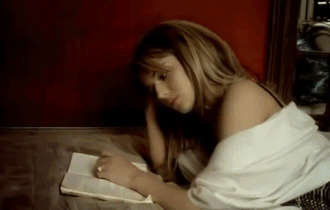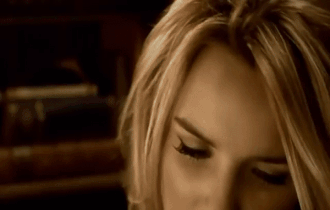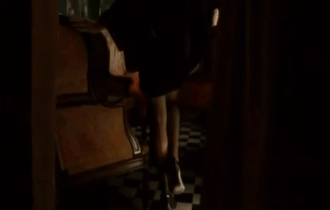Released: 13th March 2006
Writers: Miranda Cooper / Brian Higgins / Tim Larcombe / Lisa Cowling / Giselle Sommerville / Xenomania
Peak position: #6
Chart run: 6-13-33-40-73
Girls Aloud were responsible for some of the best pop music of the ‘00s. But their ballads rarely – if ever – factor into that discussion. For the most part, this is with good reason, but Whole Lotta History is a notable exception to the rule.

This single arrived at a time when the future of Girls Aloud’s career was looking decidedly uncertain. Their third album, Chemistry, felt like a fully realised version of the identity that Xenomania had slowly been piecing together, with songs that continued to push boundaries and defy convention. But while Polydor had certainly permitted a high degree of indulgence, which took Girls Aloud into uncharted territory for a mainstream pop act (not that many were still around at this point), they were evidently still aware that at some point came a need to balance the books. The result of this was that the Chemistry campaign felt like it was being steered by record label logic more often than was welcome. The divisive lead single Long Hot Summer only existed because it had been pitched for the soundtrack to Herbie: Fully Loaded but ended up being dropped from the project at a late stage. Then after releasing Biology – which remains a benchmark of Xenomania and Girls Aloud’s combined brilliance – it was promptly shoved out of the way four weeks later for an unnecessary cover of See The Day, intended to capitalise on the festive market.

Thus, following a ballad with another ballad seemed like a bad idea indeed. Except this is easily one of their very best and quickly demonstrates that the issue with See The Day and – to a slightly lesser extent – I’ll Stand By You was that they had lost sight of who Girls Aloud were altogether. That is never the case here, and, in many ways, it serves as a timely reminder that they were more than a vessel to showcase Xenomania’s wizardry. For Whole Lotta History contains arguably their best performance up to this point.

What you have here is the difference between Girls Aloud delivering a functional reading of the material – as heard in those earlier cover versions – and instead truly getting under the skin of it. The song deals with a break-up in a way entirely believable to a group of young women. The outro is a perfect example; it’s written using colloquial language: “…And it might sound crazy, but your voice still leaves me all funky, all funky”, yet still delivers an emotional gut-punch that will take your breath away. The lyrics are viscerally tortuous in the way they capture the mental anguish of an ex moving on with someone else: “Does she love you like I never could, hold you tender tell you everything’s good, woah-woah; would she hurt you, ’cause I never could, does she hold your body tight all night baby”. The way Whole Lotta History tackles its theme from an instinctively human perspective is incredibly relatable. If you’ve been through a break-up, then chances are you’ve endured the very same intrusive thoughts that Girls Aloud are recounting here.

There are no weak links; each member of the group steps up and delivers. But Nicola’s verse, in particular, is beautifully bleak: “Hello, did you call me? I thought it didn’t matter that you’re gone, and I know, end of story, now there’s nothing but a shadow where my heart shone”. The delicacy in her voice is the perfect foil to the aching melancholy, which feels like a lightbulb moment for Xenomania. Whole Lotta History is the first Girls Aloud single where the five members sound tonally distinct from one another and where that contrast palpably elevates the song. This would become an increasingly notable cornerstone of the group’s future albums.

It was always going to be a challenge to create a music video for Whole Lotta History that didn’t reinforce the notion of Girls Aloud’s uptempo material being more appealing. So, in that sense, the visual treatment for the track is pleasant for what it is. Indeed, it was refreshing to see a proper location shoot (in Paris, because heartbreak) with sophisticated styling instead of another studio-bound video. However, as fitting as it is to see Girls Aloud mope around the city and gaze moodily into the camera, that is still at odds with the general ethos of the group’s identity. As a one-off, this wouldn’t have been a problem, but context did it no favours and two ballads deep, the muted palette of greys and blacks used here suddenly left the whizz-bang of Chemistry feeling like a distant memory.

Whole Lotta History became the second highest-peaking single from the album when it reached #6 in the UK. At first glance, this was hardly a disaster; after all, it was the fourth single from Chemistry and hadn’t been significantly remixed from the version many fans already owned. But Girls Aloud and their team’s reaction to the chart performance was captured in their behind-the-scenes reality show Girls Aloud: Off The Record, and it was very much a case of putting on a brave face. There was an overriding sense that the commercial return on Whole Lotta History wasn’t worth the amount of effort that had gone into promoting the single. And when the track went on to spend just five weeks in the top 75, it’s difficult to disagree.

Indeed, that frustration felt – to some extent – as if it reflected the Chemistry campaign as a whole. Having peaked at #11, it remains Girls Aloud’s only (studio) album to miss the top ten. There is plenty of debate to be had over the choice of singles, but it doesn’t change the fact that the group worked incredibly hard to keep themselves visible and viable at a time when pop music was in the doldrums. What they got back in return was modest and unlikely to be sustainable in the long-term.

Fundamentally, balladry is never going to factor significantly into Girls Aloud’s brilliantly bonkers back-catalogue. And rightly so. Where it does, I’ll Stand By You will almost always be the reference point. However, Whole Lotta History best represents how the group – and Xenomania – could slow the pace without wholly sacrificing their musical identity. We already knew Girls Aloud had the capacity to thrill and excite. But they were also more than capable of tugging on the heartstrings, and Whole Lotta History deserves to be considered amongst their very best work.



